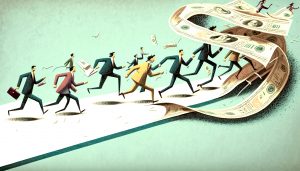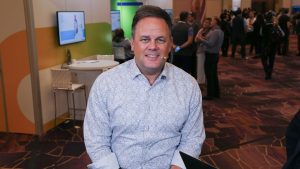Apple Wins Against Momo, Google Tricks Safari
![]() Apple won the case regarding the slide-to-unlock patent against Motorola Mobility in a German court.
Apple won the case regarding the slide-to-unlock patent against Motorola Mobility in a German court.
The patent concerned, EP1964022, covers “unlocking a device by performing gestures on an unlock image.” According to a report from TG Daily, Judge Dr. Peter Guntz of the Munich I Regional Court upheld two of three claims describing implementations of the feature on smartphones, but not a slightly different version used in the Motorola Xoom tablet.
This could result in the banning of Motorola phones in Germany, but if the ruling is overturned with Motorola’s appeal, Apple could pay Motorola for damages or the possible profit they could have earned during the ban.
Motorola can tweak their unlocking procedure, like they did with the Xoom where users make a swiping gesture from the inside of a circle to the outside, but if the same unlocking mechanism is implemented in phones, that could create a problem since smartphones have smaller screens and the elaborate unlocking gesture could become frustrating.
“Today’s ruling in the patent litigation brought by Apple in Munich, Germany, concerns a software feature related to phone unlocking in select Motorola devices sold in Germany,” said a spokeswoman for Motorola. “Motorola has implemented a new design for the feature. Therefore, we expect no impact on current supply or future sales.”
With regards to the Foxconn scandal, Apple hired an independent, non-profit organization to checkout the work conditions in the Chinese factory. Auret van Heerden, president of the Fair Labor Association, who leads the investigation, praised Foxconn in his preliminary assessment.
“I was very surprised when I walked onto the floor at Foxconn, how tranquil it is compared with a garment factory,” van Heerden said in an interview with Reuters. “So the problems are not the intensity and burnout and pressure-cooker environment you have in a garment factory. . It’s more a function of monotony, of boredom, of alienation perhaps.”
“You have lot of young people, coming from rural areas, away from families for the first time,” he said. “They’re taken from a rural into an industrial lifestyle, often quite an intense one, and that’s quite a shock to these young workers.
“And we find that they often need some kind of emotional support, and they can’t get it,” van Heerden added. “Factories initially didn’t realize those workers needed emotional support.”
van Heerden’s statement were not welcomed by critics who claim it is too early to say that working conditions in the factory are okay. Critics believe that they should first gather all the evidence required, thoroughly analyze them before they give out their “findings.”
Google Tracks Safari Browsing
According to a report from the Wall Street Journal, Google and other advertising companies have found a way to bypass the privacy settings of Apple’s Safari, the top mobile browser used these days.
By default, Safari is designed to block tracking but Google and the other companies used a special computer code that tricks the Apple browser into letting them monitor the browsing activity of iOS users. The code was spotted by Stanford researcher Jonathan Mayer and independently confirmed by a technical adviser of WSJ, Ashkan Soltani, who found that ads on 22 of the top 100 websites installed the Google tracking code on a test computer, and ads on 23 sites installed it on an iPhone browser.
When the WSJ contacted Google about the code, the search giant disabled the code and released the following statement:
“The Journal mischaracterizes what happened and why. We used known Safari functionality to provide features that signed-in Google users had enabled. It’s important to stress that these advertising cookies do not collect personal information.”
A message from John Furrier, co-founder of SiliconANGLE:
Your vote of support is important to us and it helps us keep the content FREE.
One click below supports our mission to provide free, deep, and relevant content.
Join our community on YouTube
Join the community that includes more than 15,000 #CubeAlumni experts, including Amazon.com CEO Andy Jassy, Dell Technologies founder and CEO Michael Dell, Intel CEO Pat Gelsinger, and many more luminaries and experts.
THANK YOU













